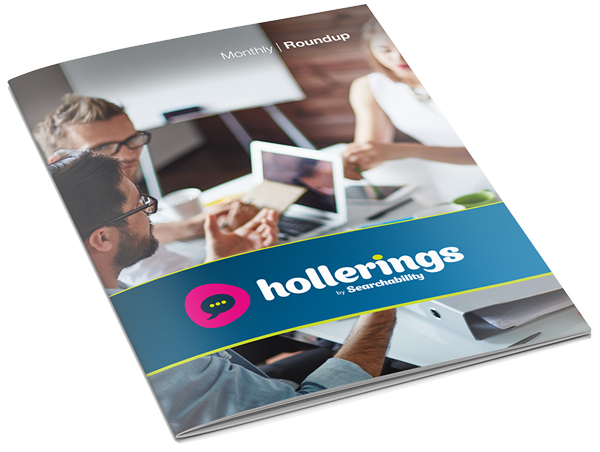Your company culture is essentially the personality of your organisation. It exists already whether you know exactly what it is or not, and it can be instrumental in helping you attract and retain great people too. The problem is it isn’t always easy to pinpoint exactly what your company culture is. It’s intangible, you cannot see it, and it is made up of so many different elements that wrapping it up into one simple definition isn’t always possible. According to statistics, more than 50% of executives say company culture influences productivity, creativity, profitability, firm value, and growth rates, so if you’re still not sure exactly what yours is it’s time to find out! We have highlighted 7 key areas that can impact company culture, to help you define exactly what yours is!
7 key areas that define your company culture:
Your management and leadership
The style of management and leadership in your organisation can have a real impact upon company culture. You’ve heard the phrase before that “people don’t leave companies, they leave bad bosses”, well sadly this can often be very true. 79% of people who quit their jobs cite ‘lack of appreciation’ as their reason for leaving, so if your management style is more boss than leader then you could be in trouble! Below are a few elements that may be contributing to negative / positive company culture through management and leadership.
Negative company culture signs:
> Employees do not feel appreciated by management
> There is a clear barrier between senior management and employees
> Managers do not lead they simply tell employees what to do
> Employees do not feel comfortable approaching management
Positive company culture signs:
> Management show empathy towards their employees
> The majority of employees trust their managers
> Employees feel valued by managers
> Managers lead and coach employees to success rather than tell them what to do
Your people
The people who work for your organisation are at the heart of your company culture. While culture will exist before an employee joins your organisation, your people are responsible for exactly how that culture spreads through the organisation. For example if your company culture is encouraging and supportive, this will radiate through your people and a positive company culture is likely to prevail. On the other hand if there are elements of negativity, even amongst a small demographic in your team, this can have a knock-on effect across the company as a whole. It’s also important to understand the personalities of the people who work for you. If company culture is the “personality of your company” and it is largely impacted by the people who work for you, then the personality of your people will undoubtedly effect this. For example, if the majority of your employees’ class themselves as “fun and social” this is likely to impact on your organisation too. Therefore hiring for cultural fit can help your retention plans, as you will attract people who are more likely to resonate with your company culture and enjoy working for you.

Your office environment
The actual environment that your employees work in can also have a big impact upon your company culture too. Even small changes to your office design and layout can have a big impact! Open plan offices are believed to encourage open communication between employees, which can make “teamwork” a big part of your company culture. Some companies design their offices to be more comfortable and relaxing for their employees with quiet spaces, comfy sofas and a few touches of home comforts! This can help to create a relaxed company culture that means employees do not feel like they are in the office at all! Some offices are designed to segregate people, with a clear barrier to management and individual work spaces that allow people to really focus and get on with their tasks. This creates a highly organised and process focused culture that you often see at larger corporate organisations. There are also the crazy office designs that you see at the likes of tech giants such as Google, with colourful spaces, office slides, games areas and other quirky things too. Whatever yours is, it will have an impact upon your culture, so start to look around and build a picture to see what you think yours is like! It’s important to note also that in some instances not every employee at your organisation will work in the office! You might employ delivery drivers, warehouse operatives, store assistants and a whole array of people who never even set foot in your HQ! Don’t forget to consider how each individual working environment can impact your culture too.
How your work
The type of work that you do will have a direct impact on your culture, as well as exactly how you do that work. If your company specialises in software and IT services for example, technology is likely to be a big part of your company culture because the people in your organisation will be interested in and working with tech every day. That being said, what you do does not automatically impact company culture so it’s important to look at how you work as well. A few questions you might want to ask are:
> Do we collaborate on ideas?
> Do we use processes such as Agile?
> Do we work at a fast-pace or is it more relaxed?
> Do we allow creativity or do we micromanage our employees?
> Do we use the latest technology?
> Do we embrace change?
There are LOADS of questions you can ask here, but the important thing is to understand how working at your organisation is different to working elsewhere, because this is what makes you unique!

Your core values
Chances are your organisation already has core values, the key thing to note here is whether these values are simply buzzwords painted on the wall in your reception or are they integral parts of your organisation and culture? Hopefully your values really will be at the core of your organisation and used every day to guide decision making at every level of your organisation too. For example if your values are integrity, honesty, passion and innovation, they really should become the heartbeat of your organisation and be identifiable by employees old and new at your company. If you think your core values are more buzzword than bedded in to your culture then we would suggest you undertake a strategic audit to make sure you can identify an authentic base for your employer brand.
The atmosphere
We touched upon this earlier when talking about how your people can impact on whether you have a positive or negative culture in your company. The atmosphere is all about that “vibe” and “feeling” you get when working in your company. It could be the type of atmosphere where colleagues laugh and joke, listen to music and tools down for a game of ping pong together or it might be more of a chilled atmosphere where people choose their own start times, work with their headphones in and only occasionally chat to their colleagues. There is no right or wrong atmosphere to have for your company culture, but it should be easily identifiable by yourself or an employee of your organisation.
Perks and benefits
Your company perks and benefits are separate to your company culture but depending on exactly what they are they may well have a strong impact upon this! If flexible working is a perk you offer, then inevitably work-life balance and flexible working will become part of your company culture! If you have regular social events, beers in the office on a Friday and fun themed activities then this fun and social culture will become part of your wider company culture. Take a look at what you offer, speak to your employees to understand which perks and benefits they enjoy using and discover which are impacting on your wider company culture.






